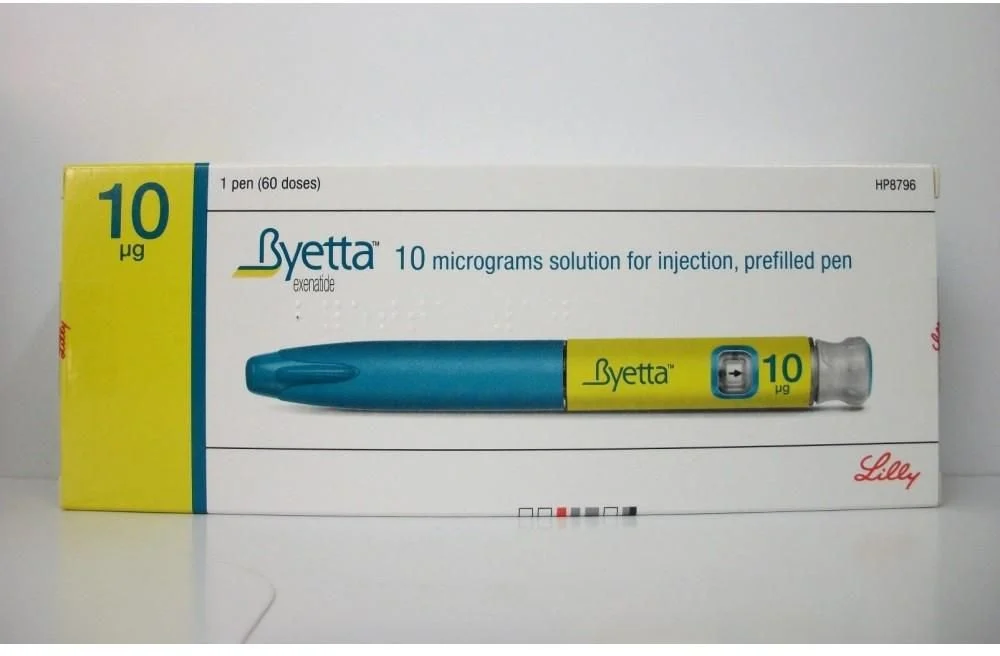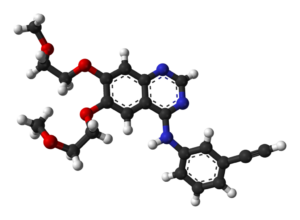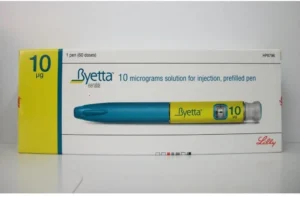
Exenatide: A GLP-1 Receptor Agonist for Diabetes Management
Exenatide is primarily prescribed to help control type 2 diabetes.. It belongs to the class of GLP-1 receptor agonists, which play an important role in maintaining the blood glucose levels. Below is an overview of Exenatide, its working mechanism, uses, structure, and related information.
How Exenatide Works
Exenatide replicates the effects of glucagon-like peptide-1 (GLP-1), a hormone that occurs naturally in the gut. It acts by:
- Stimulating Insulin Secretion: Exenatide enhances insulin release from the pancreas in response to food intake.
- Inhibiting Glucagon Secretion: It decreases glucagon release, reducing liver glucose production.
- Slowing Gastric Emptying: It delays gastric emptying, contributing to a sense of fullness, which helps in weight loss.
- Promoting Beta-cell Growth: It supports the regeneration of insulin-producing cells in the pancreas.
Uses of Exenatide
- Type 2 Diabetes:
Exenatide, with a controlled diet and regular exercise, can improve blood sugar control in type 2 diabetes patients.
- Weight Loss:
Its ability to slow gastric emptying and reduce appetite also makes it effective for weight management in diabetic patients.
- Cardiovascular Benefits:
Some studies suggest that Exenatide may have cardiovascular protective effects, though more research is needed.
Structure of Exenatide
Exenatide is a synthetic genre of exendin-4. A peptide initially derived from the saliva of a species of venomous lizard Gila monster. Its structure consists of 39 amino acids, similar to the human GLP-1 but with slight modifications to improve its stability.
C₁₈₄H₂₈₂N₅₀O₆₀S
Popular Brands of Exenatide
Here are some well-known brands and their specifications:
| Brand Name | Formulation | Dosing | Storage | Indication |
| Byetta | Injection (5 mcg, 10 mcg) | Twice a day | Refrigerate | Type 2 diabetes |
| Bydureon | Extended-release injection (2 mg) | Once a week | Refrigerate | Type 2 diabetes |
Side Effects of Exenatide
While it is generally well-tolerated, some side effects include:
-
Common Side Effects
- Nausea
- Vomiting
- Diarrhea
- Headache
- Dizziness
-
Serious Side Effects
- Pancreatitis (inflammation of the pancreas)
- Kidney problems
- Thyroid tumors (rare)
Drug Interactions of Exenatide
It may interact with the following medications:
-
Oral Medications:
Exenatide delays gastric emptying, which can reduce the absorption of certain oral medications, such as:
-
- Antibiotics (e.g., antibiotics requiring rapid absorption)
- Oral contraceptives
- Acid-reducing medications (e.g., proton pump inhibitors)
-
Sulfonylureas:
Exenatide combined with sulfonylureas may increase the risk of low blood sugar (hypoglycemia). Adjustments in dosing may be required.
Contraindications
Exenatide is contraindicated for individuals with:
- Personal or Family History of Medullary Thyroid Cancer (MTC): Due to the potential risk of thyroid tumors.
- Multiple Endocrine Neoplasia Type 2 (MEN 2): This genetic condition can increase the risk of thyroid cancer.
- Severe Renal Impairment: Exenatide is contraindicated in patients with severe kidney disease.
- History of Pancreatitis: Caution should be taken in patients with a history of inflammation of pancreas.
Important Information for Patients
- Administration: Administer as a subcutaneous injection. Depending on the formulation, it may be taken twice daily (Byetta) or weekly (Bydureon).
- Diet and Exercise: Exenatide should be used alongside a balanced diet and regular physical activity for optimal blood sugar control.
- Monitoring: Regular monitoring of kidney function and blood glucose levels is essential during treatment.
Conclusion
Exenatide is an effective medication for managing type 2 diabetes by mimicking the action of GLP-1. With its multiple mechanisms of action, it not only with potential side effects and contraindications, and careful monitoring is necessary during its use.

